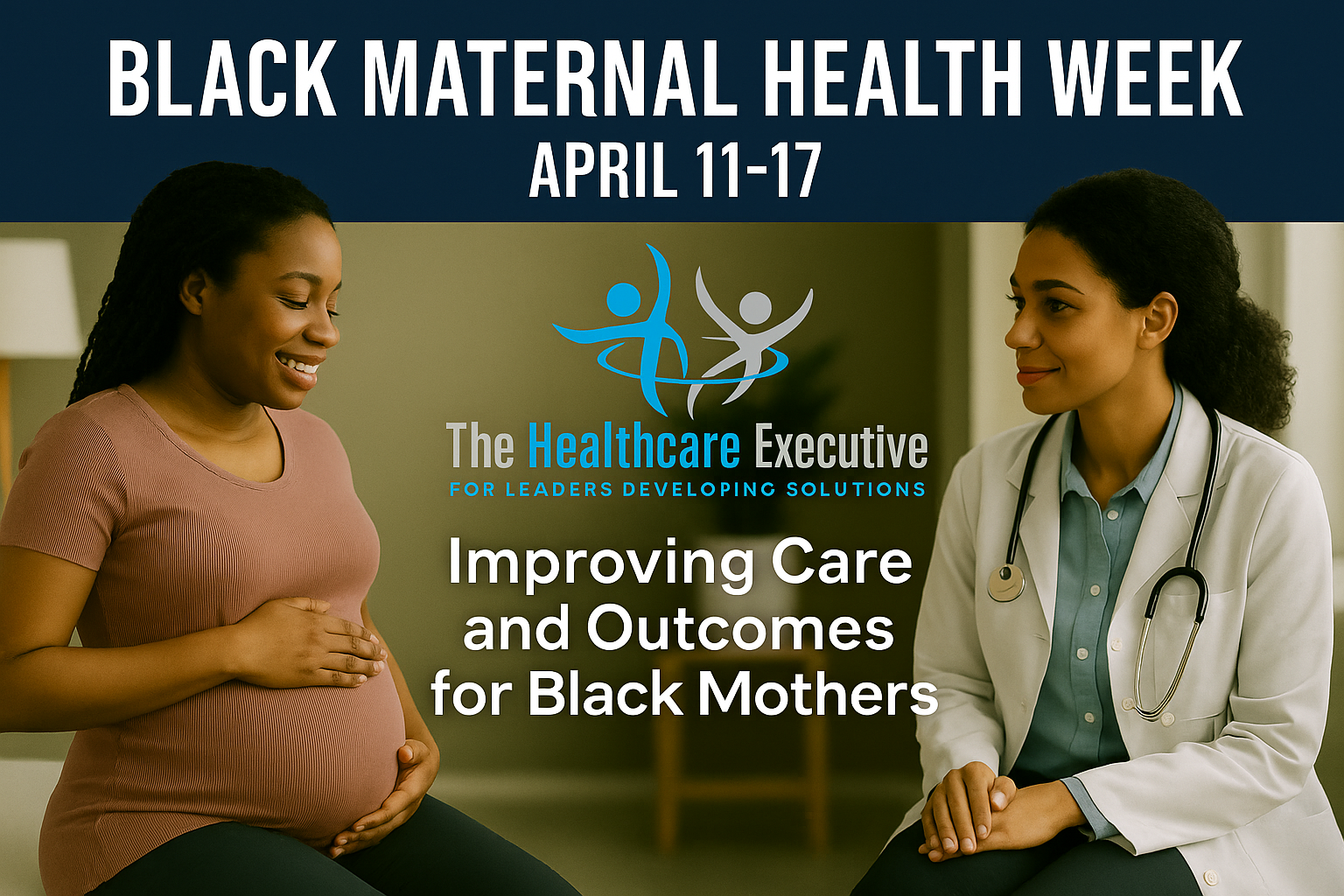Black Maternal Health Week – April 11–17, 2025

- Posted by Greg Wahlstrom, MBA, HCM
- Posted in Health Observance Calendar
Improving Care and Outcomes for Black Mothers
Published: April 11, 2025
Black Maternal Health Week, observed annually from April 11–17, brings national attention to a public health crisis that has persisted far too long. In the United States, Black women are nearly three times more likely to die from pregnancy-related causes than white women, even when controlling for income and education. These alarming disparities reveal systemic failures in clinical responsiveness, implicit bias, and access to quality prenatal care. During this critical week, leaders across the healthcare ecosystem—from hospitals to policymakers—are urged to reevaluate how maternal care is delivered, particularly to Black women. Health systems like Northwell Health have created task forces and protocols to specifically address these disparities. Institutional accountability must be supported by community-driven solutions, culturally competent care models, and sustained funding for Black maternal health research. More than an observance, this week should catalyze action at every level of healthcare leadership. It’s a call to realign maternal care priorities around equity, outcomes, and trust. Therefore, executives must understand that the solutions start upstream—with policy, workforce culture, and authentic engagement.
Addressing Black maternal health inequities requires more than temporary initiatives; it demands a strategic transformation of care models. Health systems that lead in this area embed racial equity as a measurable quality metric, integrated into leadership scorecards and organizational strategy. At UCSF, clinicians and faculty researchers are collaborating on targeted interventions to close maternal mortality gaps while advancing trust through community-based education and patient partnerships. Meanwhile, system-wide efforts like doulas-in-care teams and risk screening early in pregnancy have proven effective in both outcomes and patient satisfaction. Executives must also explore the role of digital tools such as mobile prenatal apps that increase appointment adherence and improve continuity of care. Technology isn’t a replacement—it’s a complement to equity-centered relationship building. Investing in social determinants of health—housing, food security, and transportation—is equally vital. These elements directly impact maternal safety and long-term recovery. Hence, integrating wraparound support services should be a leadership imperative in 2025.
Clinician education and workforce development remain pivotal in closing the gap in maternal care outcomes. Medical mistrust is deeply rooted in historical neglect and abuse, and until clinicians are adequately trained in bias recognition, culturally responsive care will remain elusive. Organizations such as Black Mamas Matter Alliance offer leadership workshops and toolkits that should be embedded into hospital training curricula. Healthcare executives should require every employee—from OB/GYNs to intake staff—to receive ongoing maternal health equity training, not just once during onboarding. Health systems like Boston Medical Center have implemented multidisciplinary pathways that help standardize respectful communication and eliminate clinical delays for Black patients. This culture shift will only sustain if enforced by board-level oversight and transparent reporting. Leaders who fail to prioritize this may inadvertently perpetuate disparities. But those who invest in equitable maternal care position their institutions as models of innovation and integrity. As trust is rebuilt, so too is health equity.
Community voices and patient narratives must shape how hospitals and health systems respond to maternal health disparities. Black women are not just patients; they are co-designers of their care, experts in their lived experiences, and essential to systemic redesign. Initiatives like listening tours, community advisory boards, and birth equity councils are no longer optional—they’re a strategic requirement. Executives must elevate community perspectives to governance tables, not just marketing campaigns. Health systems like Mount Sinai have launched Black maternal health pilot programs that center the voices of Black birthing people in care redesign. These partnerships extend beyond the hospital and into churches, community centers, and digital platforms where trust lives. In doing so, they build a continuum of care rooted in respect and responsiveness. The result is not only improved outcomes, but stronger reputations among diverse patient populations. Leadership that ignores these insights will fall behind in a trust-driven economy. Conversely, those who listen, adapt, and invest will define the future of maternal healthcare.
Black Maternal Health Week is more than a campaign—it is a leadership barometer. Are today’s executives willing to prioritize maternal equity as a core strategy rather than a side initiative? The answer lies in how budgets are allocated, how quality is measured, and how accountability is enforced. As organizations reflect on their performance, now is the time to invest in long-term solutions that dismantle racism in healthcare. Transparent dashboards, inclusive staffing, and integrated policy reform must be part of the executive toolkit. Hospitals must become champions of birth equity from boardroom to bedside. Learnings from leading systems should be shared across the nation through peer-to-peer innovation forums and C-suite collaborations. Only when maternal equity is fully embedded into system DNA will we see a transformation in care and trust. The Healthcare Executive remains committed to empowering hospital leaders with the tools, research, and guidance to lead that transformation in 2025 and beyond.
Discover More:
For more insights on equity-driven leadership and maternal care transformation, explore our featured article below.
Related Posts from The Healthcare Executive
- The Healthcare Workforce Crisis: Executive Solutions That Actually Work
- Rebuilding Trust in U.S. Healthcare: A Leadership Blueprint



